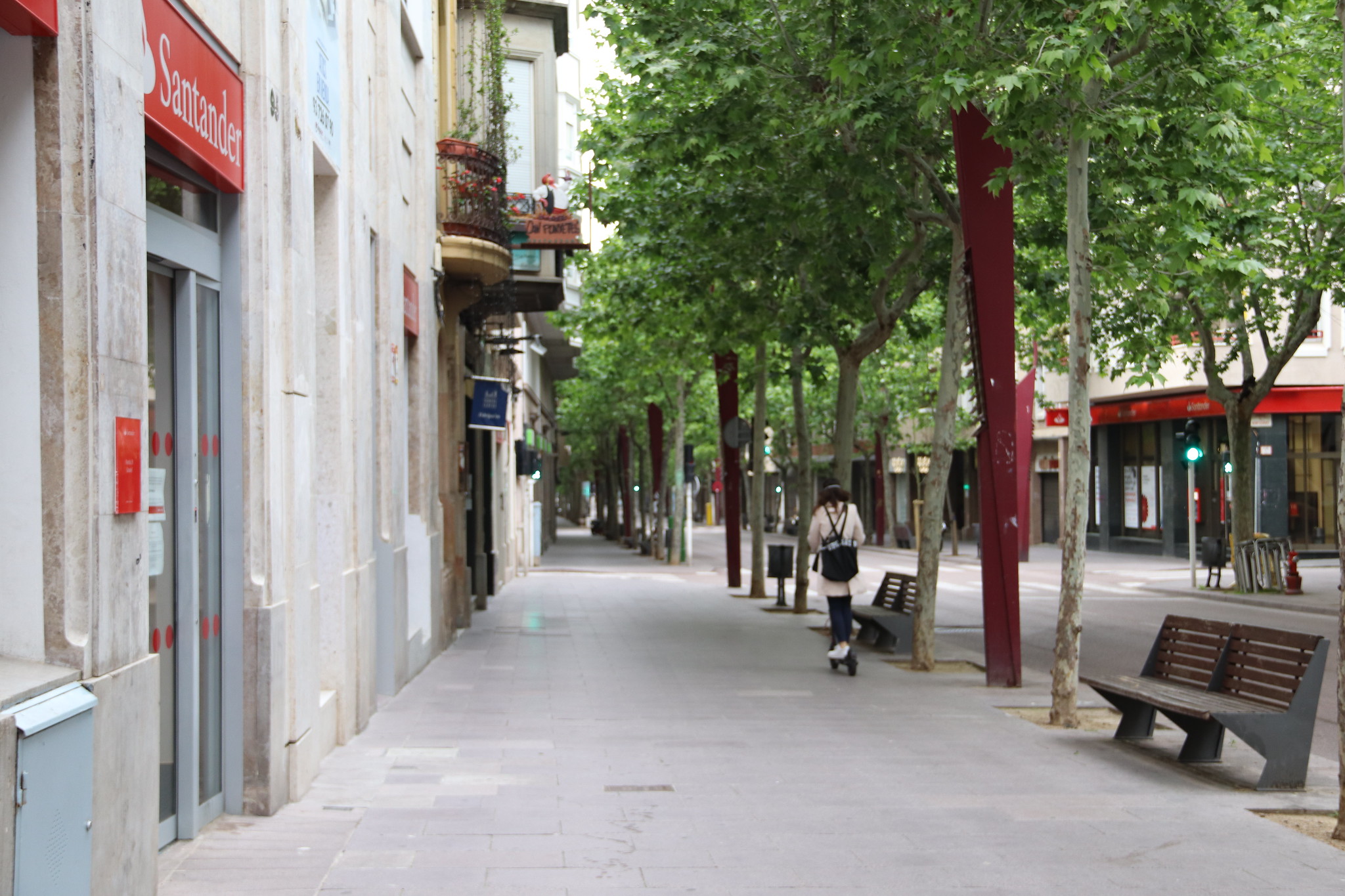Agriculture and sustainable mobility in cities after the pandemic
ICTA-UAB researchers will promote two studies funded within the framework of the AGAUR's PANDÈMIES 2020 call, aimed at scientific research projects analysing the impact of the Covid19 pandemic in our society and proposing new measures and courses of action to overcome its consequences and define new preventive and treatment models.

The call, entitled "Retreating to grow: the impact of pandemics in a world without visible borders” (PANDÈMIES 2020), grants funding to conduct two projects on agriculture and sustainable mobility in cities involving ICTA-UAB researchers.
The proposal "Resilient municipalities to pandemics through the nexus of proximity agriculture, energy, water and waste. From pilot to municipality", led by researcher Dr Xavier Gabarrell, received a grant of 346,000 euros. The project will promote self-sufficiency of resources, waste reduction, and the improvement of sustainability and circularity within schools, buildings and municipalities through the analysis at pilot and municipality scale, which will help cities adapt to unusual situations, such as pandemics.
The aim is to adapt to new realities and needs. Therefore, until the end of 2022, the project will analyse the technological, environmental, social and economic integration of urban and proximity agriculture, recycling, and waste reduction, to transform cities into resilient, sustainable and healthier spaces for the current and future pandemics.
The research groups Sostenipra and GICOM of the Universitat Autònoma de Barcelona (UAB) and the Universitat Politècnica de Catalunya (UPC) will promote this project, which integrates environmentalists, agronomists, architects, engineers and industrial designers, among others. The research will be carried out at the ICTA-UAB building and in the DEQBA facilities located on the UAB campus, at the INS Ca n'Oriac (Sabadell), and in the Institut de jardineria i agricultura Les Garberes (Castellar del Vallès), as well as in different neighbourhoods of the Barcelona Metropolitan Area.
The other subsidised project is "Inclusive, sustainable, healthy and resilient. Mobility and the city in the post-Pandemia scenario" led by Dr Carme Miralles, from the Department of Geography, with the involvement of ICTA-UAB researchers Isabelle Anguelovski, Esteve Corbera and Jeroen van den Bergh.
The proposal, which received 159,000 euros, aims to reflect on how to maintain the necessary levels of mobility within a socially and environmentally sustainable model, and what role micro-mobility can play in the configuration of post-pandemic mobility.
The effects of the COVID19 pandemic have been felt strongly in all strata and sectors of society. The decline in confidence in public transport and the consequent economic crisis have put the resilience of our transport system to the test, forcing the population to alter their mobility habits and find alternatives to meet all their daily needs in the context of the pandemic. Mobility, in its function of providing access to basic needs, plays and will continue to play a key role in managing daily life during and after the pandemic. The need to adapt mobility to the new circumstances has led a large but as yet undetermined volume of the population to use new modes of transport such as bicycles, motorbikes and electric and shared scooters, different means of transport grouped together under the name of micro-mobility.
This is why this project has a twofold objective. Firstly, to understand and evaluate the changes in mobility caused by the Covid19 crisis in all of its dimensions. To do this, a combination of transdisciplinary and innovative methods will be used to understand the impacts that the change in mobility has provoked across well-differentiated territories (Barcelona, Sabadell, Reus) and population groups (according to age, gender, income). Secondly, the project aims to clarify how the availability of access to micro-mobility services has helped or hindered the necessary adaptation of mobility. The results of the project should help in making decisions regarding two of the aspects that are of most concern in our cities: how to maintain the necessary levels of mobility within a socially and environmentally sustainable model, and what role micro-mobility can play in the configuration of post-pandemic mobility.
The project is made up of a team of 24 PhDs from 5 universities (UAB, UB, UPC, URV and UVic) and the ISGlobal (CERCA centre), with a long research career. It also has the support of the ATM and the city councils of Reus and Sabadell.